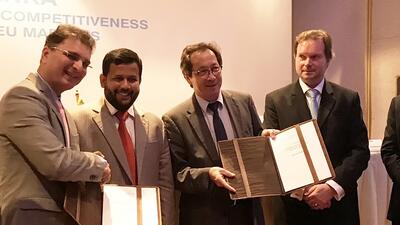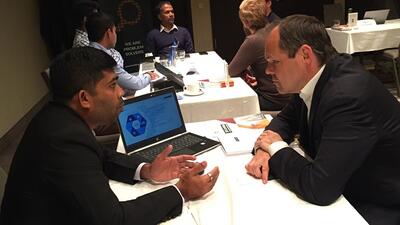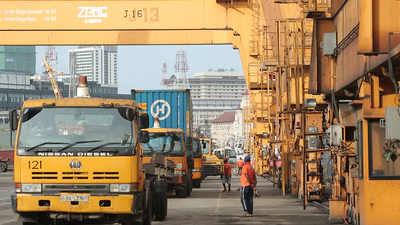
B2B meetings in Sweden turning into deals for Sri Lankan tech companies
Stockholm’s tech sector is by some measures second only to Silicon Valley when it comes to churning out successful companies. But for Swedish businesses looking to outsource services to lower-cost locations, Sri Lanka’s nascent tech industry has not been prominent on the radar screen.
Thanks to a targeted set of interventions by the International Trade Centre, this is starting to change. Following meetings organized by ITC in Stockholm in May, Sri Lankan companies are starting to do business with Swedish counterparts, with more deals in the pipeline. The Sri Lankan companies are providing website and app design services to Swedish companies in sectors ranging from insurance and advertising to mobile gaming and media streaming.
Seven Sri Lankan companies and 20 Swedish firms participated in the Digital Outsourcing Services Matchmaking Event, organized by ITC within the framework of the EU-Sri Lanka Trade Related Assistance project funded by the European Union.
In addition to identifying the Sri Lankan companies and matching them with promising Swedish counterparts, ITC had worked to prepare them for the meetings in Stockholm with training on export marketing, how to do business in Sweden and compliance with the EU’s General Data Protection Regulations (GDPR).
Azwaan Ameer from INEXIS Consulting, one of the companies in the ITC-supported delegation, said that the Export Marketing Plan training had caused his company to change its strategy for how it markets its unique selling points. “This has opened up new markets for us, new partnerships and new networks and relationships,” he said. “I am very confident that all these partnerships exposed through project support will help us to attract a lot of customers.”
Sri Lanka is an emerging outsourcing destination, bolstered good communications infrastructure, competitive costs, skilled labour and an enabling regulatory framework. However, its tech sector still has considerable scope to make inroads in new markets.
“This B2B event has given us more confidence in what Sri Lankan companies have to offer. There is a good possibility of work with Sri Lanka through outsourcing,” said a representative from one of the participating Swedish companies. “I did not know how much they have moved forward in terms of infrastructure development, we now have a very good picture through these B2Bs of the technology and knowledge of Sri Lankan companies.”
Thorsten Bargfrede, head of political, trade, and communications at the EU delegation, told the gathering that the EU-funded work in Sri Lanka was creating opportunities for young people, especially women. “This is in line with the project's overall objective of helping Sri Lanka to achieve inclusive trade-led growth and regional integration, which in turn can support poverty alleviation," he said.
In the weeks since the B2B meetings in Stockholm, the Sri Lanka companies report substantial follow up with prospective Swedish partners. Eighteen connections appear likely to lead to business, with two companies already reporting transaction values in the neighbourhood of $50,000.







